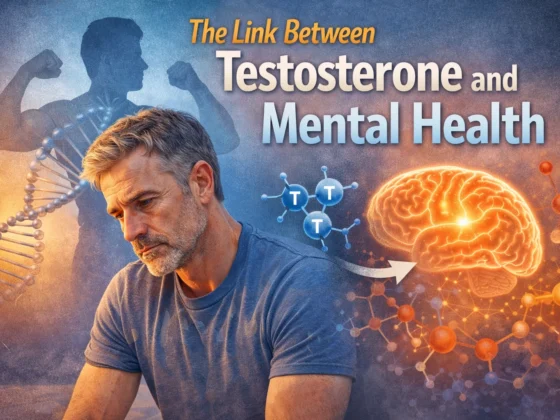Thanks to TV and films, we might associate infertility as being a woman’s problem. But studies show that almost just as many men in the US (9% to be exact) struggle with fertility and conception. And given that we tend to only encounter fertility problems when we actually decide to have a child, this figure could be higher – plenty of child-free and single men are probably infertile as of right now, they just don’t know it.
So, what does infertility look like in men, can you avoid it, and can you test for it? Let’s take a look.
Understanding Male Infertility
Here’s the truth: if you and your partner can’t conceive, there’s a 50-50 chance it’s on the male side. As we mentioned above, the infertility rate for men in the US is around 9%, with the rate for women around 11%. And according to recent studies, infertility is actually quite common, with 12% to 15% of couples being unable to conceive after a year of trying to get pregnant.
Key Signs of Infertility in Men
So, what do you need to look out for if you’re trying to conceive and wondering if you’re dealing with slow swimmers?
No symptoms
We’ll get this one out the way first – sometimes, infertility is absolutely symptomless. Not even a ball twinge. So if you’ve been trying to conceive unsuccessfully but don’t think it’s you because “you don’t have any symptoms”, note that it could still be you, and a medical test is the only way to rule out fertility issues on your side.
Changes in Sexual Function
Now onto symptoms – if you’re noticing issues with erections, lower sex drive, or problems ejaculating, these could be warning signs. While occasional issues are normal – especially if you’re stressed – consistent problems might signal something’s up with your fertility.
In some cases, your member just needs a bit of a boost – in which case we’d recommend you order our high quality cock pump today – some guys see a difference in their erection after just one use.
Changes in Sperm Quality
You can’t see your sperm quality without a test, but there are hints. If your ejaculate looks watery or has changed in volume, it’s worth getting checked out, especially if you’re trying to conceive. And if your tests are clear, you can take a look at our blog on how to improve sperm count so you can make a difference naturally.
Physical Changes
Watch for things like swelling or pain in your balls, changes in body hair growth, or muscle mass loss, all of which can be linked to hormonal issues that can impact your fertility.
Pain or Discomfort
While the occasional twinge usually isn’t anything to worry about, any ongoing and unexplained pain down there needs attention. Could be nothing, could be something – only way to know is to get it checked.
When to Seek Medical Advice

Importance of Early Consultation
We get it – nobody likes going to the doctor, especially for this stuff. But here’s the deal: catching problems early means better chances of fixing them, and increased chances of you and your partner being able to conceive. If you’ve been trying for a kid for a year with no luck (or six months if your partner’s over 35), it’s time to get checked.
Recommended Tests and Evaluations
First stop: sperm analysis. It’s not as awkward as you think! You’ll do a quick test, get tons of info about what’s going on, and your doc might also check hormone levels and do a physical exam. And yes, just like that episode with Chandler in Friends, you’ll need to jerk off into a little cup. Avoid sex for a few nights and don’t masturbate the day before to ensure you’re able to overcome the doctor’s-office jitters.
Lifestyle Factors That Affect Fertility
Diet and Nutrition
Your boys need fuel to swim, which is why loading up on antioxidant-rich foods, healthy fats, and plenty of protein can boost your fertility game. Skip the processed junk and heat-damaged oils and try to do the 80/20 method if you’re a foodie who can’t skimp on the weekly takeout.
Exercise and Weight Management
Being overweight tanks your testosterone and sperm production. But here’s the flip side – too much exercise can also mess with your fertility. Find the sweet spot with moderate workouts and healthy eating.
Avoiding Toxins and Substance Abuse
You’ll likely already know this, but smoking, heavy drinking, and recreational drugs can wreck havoc on your swimmers. Even some over-the-counter meds can impact fertility. Heat is another killer – maybe rethink those long hot tubs or laptop-on-balls sessions.
The Bottom Line
To sum up, what’s worth noting is that fertility isn’t necessarily just about having kids right now – you want to be able to keep your options open for the future. Don’t wait for problems to show up before taking care of yourself, and if you are trying for a child, don’t put off the test – make like Chandler Bing and get it over with.










